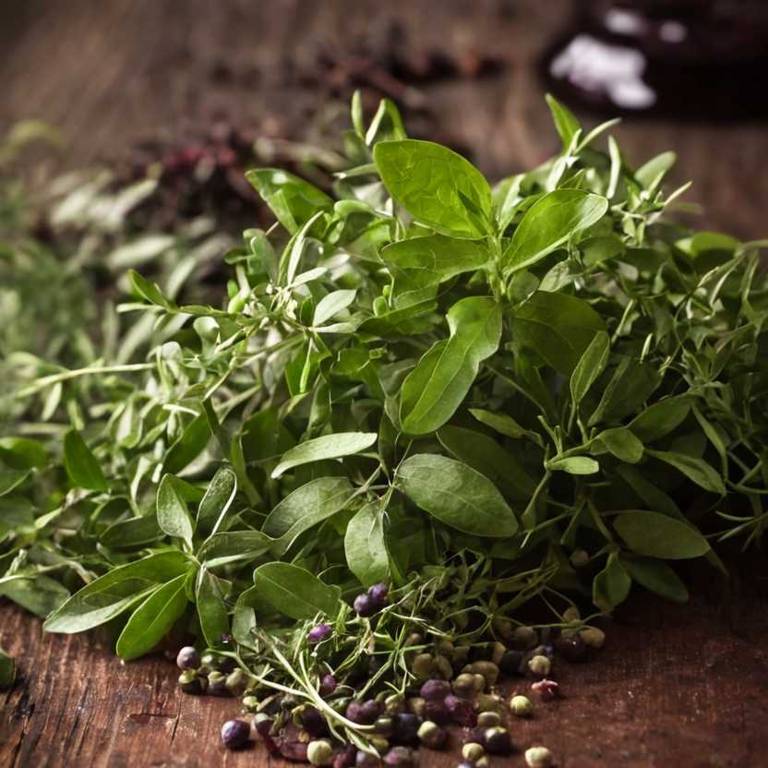By Leen Randell
Updated: Jul 05, 2024
What Are The Medicinal Properties Of Vaccinium Myrtillus (Blueberry)?

Vaccinium myrtillus, also known as blueberry, has health benefits such as antioxidant and anti-inflammatory properties, which can help protect against cell damage and reduce the risk of chronic diseases.
The medicinal constituents of blueberry include anthocyanins, flavonoids, and phenolic acids, which contribute to its therapeutic effects. Blueberry is commonly used in preparations such as teas, capsules, and extracts. However, it can cause side effects like gastrointestinal upset and allergic reactions in some individuals.
It is essential to consult a healthcare professional before using blueberry as a treatment for any condition, especially in cases of pregnancy, diabetes, or blood clotting disorders.
This article explains the health benefits, active constituents, medicinal preparations, possible side effects, and precautions related to Vaccinium myrtillus.
- What are the health benefits of Vaccinium myrtillus?
- What are the active constituents of Vaccinium myrtillus?
- What are the medicinal preparations of Vaccinium myrtillus?
- What are the possible side effect of using Vaccinium myrtillus improperly?
- What precautions to take when using Vaccinium myrtillus medicinally?
What are the health benefits of Vaccinium myrtillus?
Vaccinium myrtillus, also known as blueberry, has health benefits such as reducing inflammation and improving cardiovascular health due to its high antioxidant content.
The berries are rich in anthocyanins and flavonoids, which have been shown to improve memory and cognitive function.
Research suggests that blueberries may also help to manage blood sugar levels and reduce the risk of age-related diseases such as Alzheimer's and Parkinson's.
Here's a detailed article about the 10 health benefits of Vaccinium myrtillus.
What are the active constituents of Vaccinium myrtillus?
Vaccinium myrtillus, also known as blueberry, has active constituents such as anthocyanins, phenolic acids, and tannins that contribute to its medicinal properties.
Anthocyanins, particularly delphinidin and malvidin, are responsible for the fruit's antioxidant and anti-inflammatory effects. Phenolic acids, like ferulic and sinapic acids, exhibit antimicrobial and anti-cancer properties. Tannins also have astringent and antimicrobial activities.
These bioactive compounds are thought to be responsible for the fruit's potential health benefits, including cardiovascular and neurological protection.
Here's a detailed article about the 10 active constituents of Vaccinium myrtillus.
What are the medicinal preparations of Vaccinium myrtillus?
Vaccinium myrtillus, also known as blueberry, has medicinal preparations such as capsules, tablets, and tinctures that are rich in anthocyanins and other phenolic compounds.
These preparations are used to treat various health conditions, including inflammation and oxidative stress, as well as to support cardiovascular and cognitive health.
The berries are also used to make jams, jellies, and teas that are consumed for their potential health benefits.
Here's a detailed article about the 10 medicinal preparations of Vaccinium myrtillus.
What are the possible side effect of using Vaccinium myrtillus improperly?
Improper use of Vaccinium myrtillus, also known as blueberry, increases the chances of experiencing side effects such as allergic reactions, digestive issues, and interactions with certain medications.
Ingestion of excessive amounts can cause stomach upset, diarrhea, and nausea.
Additionally, people with kidney stones or bleeding disorders may need to avoid blueberry due to its potential to exacerbate these conditions.
Here's a detailed article about the 10 most common side effects of Vaccinium myrtillus.
What precautions to take when using Vaccinium myrtillus medicinally?
Before using Vaccinium myrtillus, also known as blueberry, for medicinal purposes, you must take precautions such as consulting a healthcare professional to determine the correct dosage and potential interactions with other medications.
Additionally, individuals with diabetes or those taking blood thinners should exercise caution due to the fruit's high anthocyanin content, which can affect blood sugar levels and bleeding risk.
Allergic reactions, such as gastrointestinal upset or skin irritation, can also occur in some individuals.
Here's a detailed article about 10 precautions to take when using Vaccinium myrtillus.